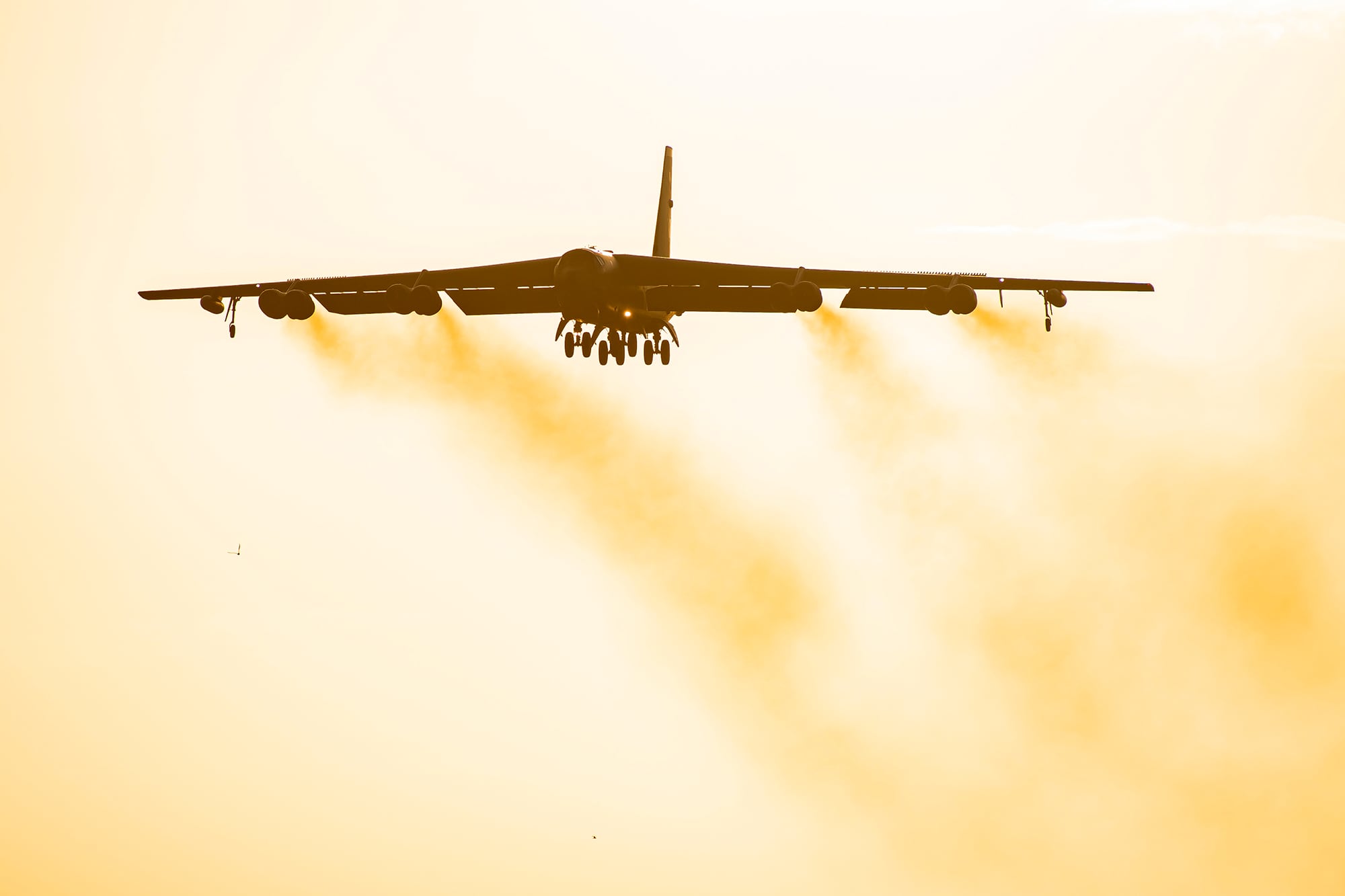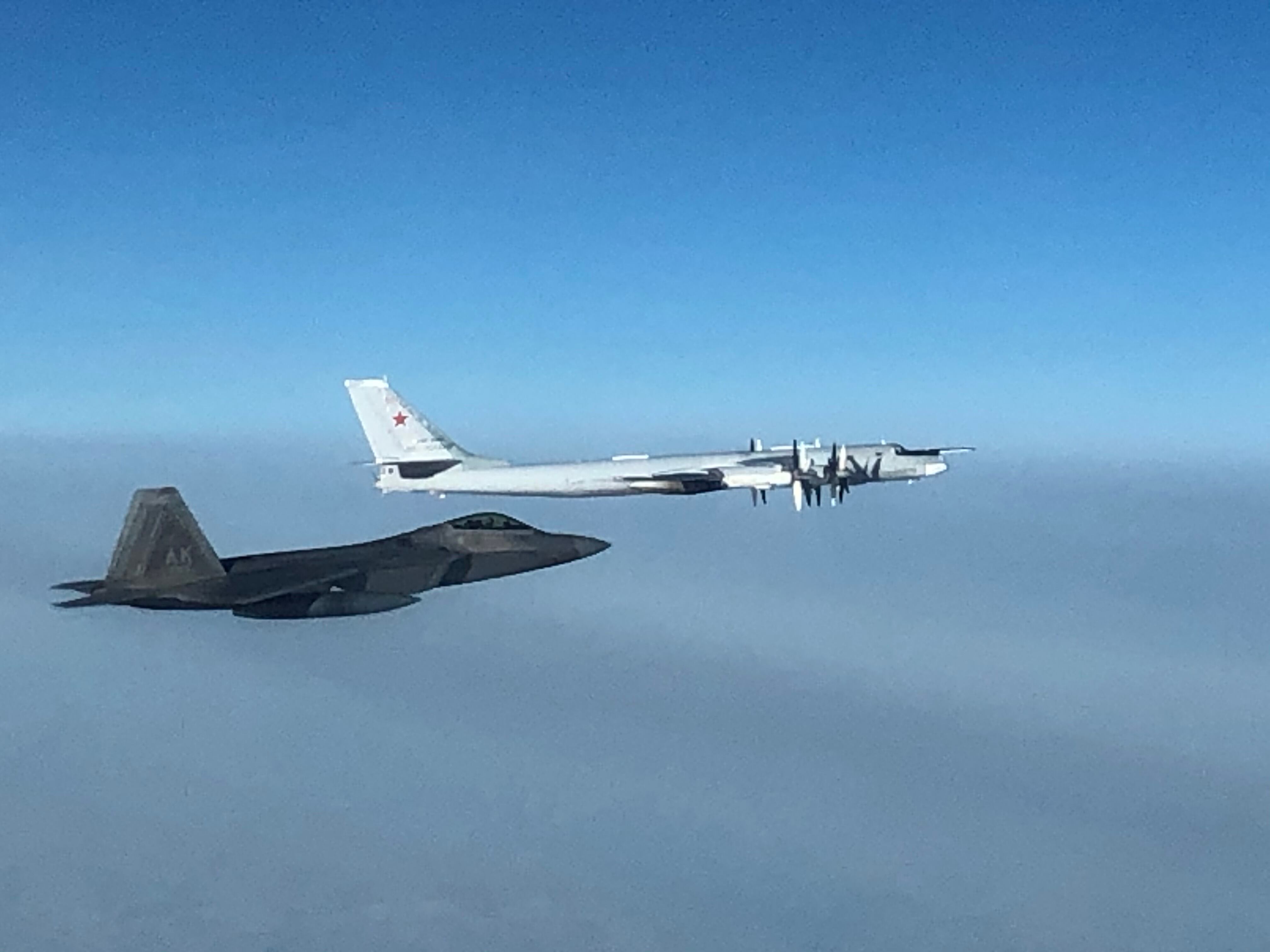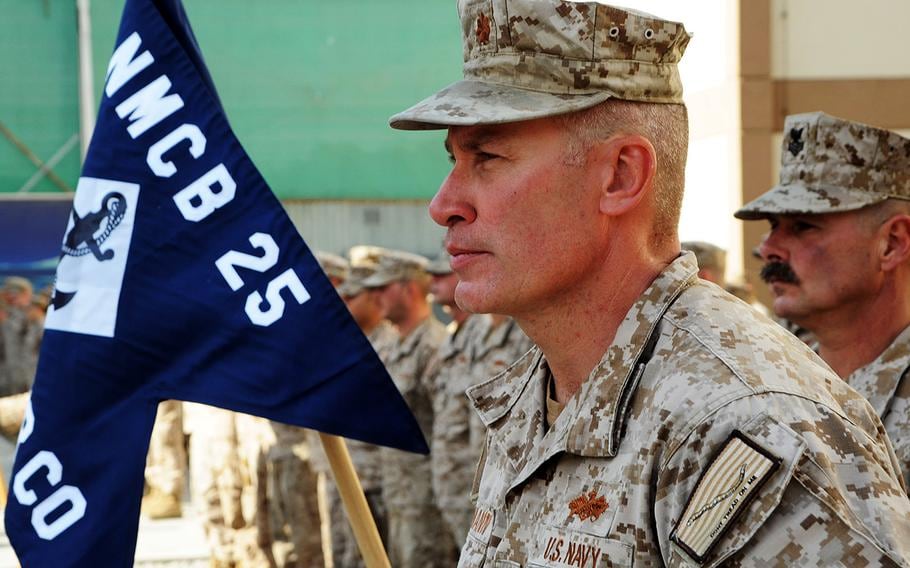F-22 Raptors from the North American Aerospace Defense Command, or NORAD, intercepted a group of Russian aircraft in international airspace near Alaska Monday night.
In a series of tweets early Tuesday morning, NORAD said the Raptors intercepted a pair of Russian Tu-95 “Bear” bombers escorted by Su-35 fighters. NORAD said it also identified a Russian A-50 airborne early warning and control aircraft supporting the other Russian planes that “loitered” in the Alaska Air Defense Identification Zone and came within 30 nautical miles of Alaska’s shore.
NORAD said that all Russian aircraft remained in international airspace and at no time entered U.S. or Canadian airspace.
“NORAD forces remain on alert 24/7/365 to respond to potential threats to Canada and the United States,” NORAD commander Gen. Glen VanHerck said in a tweet. “The agility and readiness of our personnel ensures we are successful in addressing potential aerospace threats with the appropriate response at the right time.”
RELATED

The NORAD F-22s were supported by the E-3 AWACS and KC-135 Stratotanker refueler aircraft.
Later that morning, Russia’s Ministry of Defence tweeted a video of the encounter from their pilots' perspective. Russia said the flight was “a scheduled 12-hour flight” over neutral waters of the Bering Sea between Russia and Alaska, as well as the Okhotsk, Chukchi and Beaufort seas.
NORAD regularly intercepts Russian aircraft in the international airspace around Alaska, and most encounters pass without serious incident.
The Air Force also has conducted multiple bomber flights in areas around Russia, such as over the East Siberian Sea, Ukraine and the Black Sea.
But tensions sometimes arise from these encounters. In August, the U.S. military accused Russian military planes of conducting unsafe intercepts of B-52 Stratofortress bombers as they were being flown over all 30 NATO nations. NATO also said that a Russian fighter committed a significant violation of a NATO nation’s airspace while conducting another intercept of a B-52 over the Baltic Sea.
Stephen Losey is the air warfare reporter for Defense News. He previously covered leadership and personnel issues at Air Force Times, and the Pentagon, special operations and air warfare at Military.com. He has traveled to the Middle East to cover U.S. Air Force operations.









